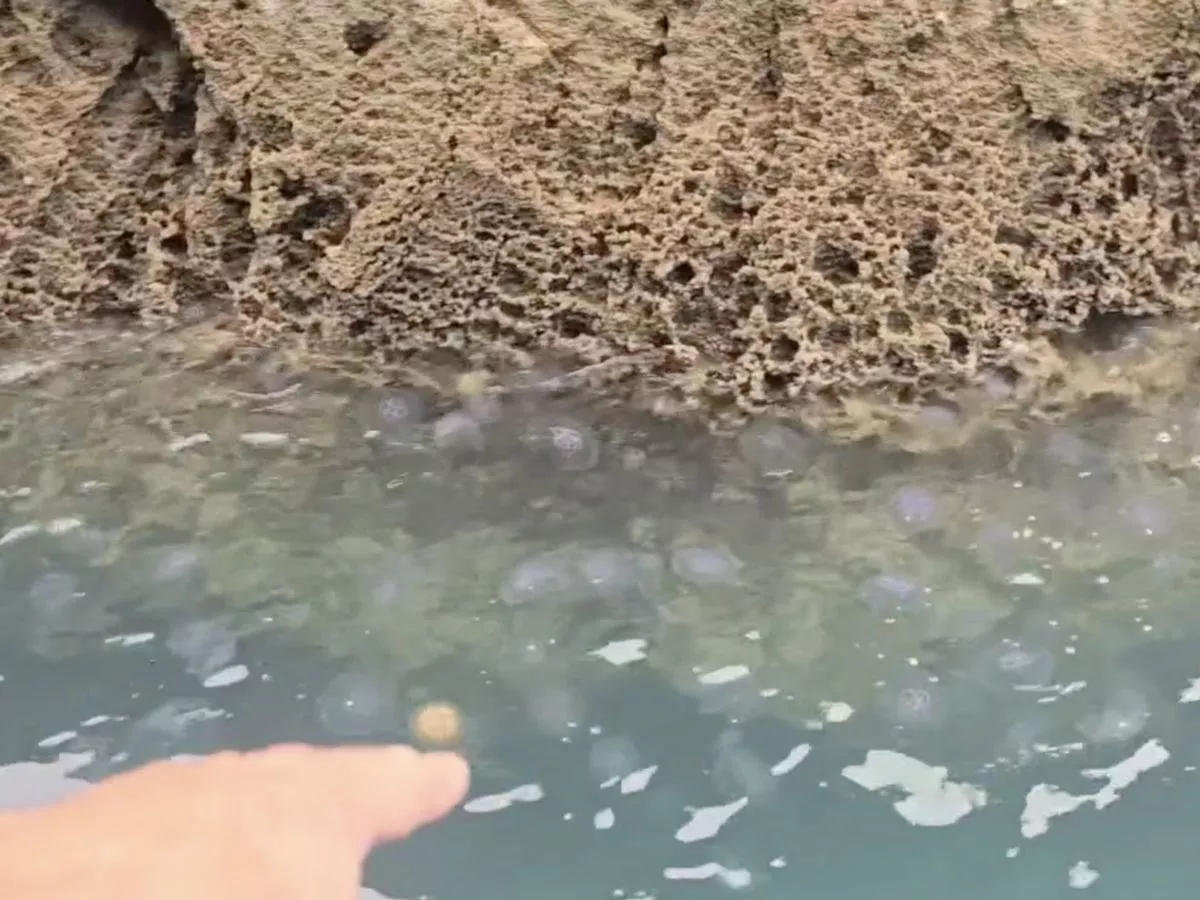By Neil Shaw
An invasion of thousands of stinging jellyfish has been triggered by the sizzling start to the summer as swarms were spotted at the foot of a cliff off a popular Devon beauty spot. The compass and moon jellyfish were spotted in the sea off Brixham – and both can sting, with the compass sting said to be painful. The compass jellyfish are known for their distinctive brown markings, resembling a compass, and while not as dangerous as some other species, their sting can be painful and cause welts, rashes, and swelling that can last for hours, days or weeks. They are usually found in the Mediterranean and Atlantic. Moon jellyfish are more common in our waters and are said to have a mild sting that poses no danger to people. They were spotted off Brixham and Tristan Northway, skipper of the Four Reasons charter boat, said the recent warm weather caused the bloom. “There are thousands of them,” he said, “And depending what direction the wind is, they will gather in places. There are all sorts of jellies including compass, comb jellyfish which are really cool, and moon jellyfish. “Because they water is warmer now we are seeing a lot more of them They only live for six to 12 months.” It could be just the start of the jellyfish swarms as temperatures soar. The UK experienced the hottest day of the year on Tuesday, with temperatures getting as high as 35C. And the scorching conditions could last throughout the month. Compass jellyfish are known for their distinctive V-shaped markings and can inflict a painful sting according to the Devon Wildlife Trust . While not as dangerous as some other jellyfish, their sting can still be quite unpleasant and should be avoided. If stung, remove any tentacles with tweezers or a credit card, rinse with seawater, and then warm water. If symptoms worsen, seek medical advice. Compass Jellyfish Sting: What to do if stung
